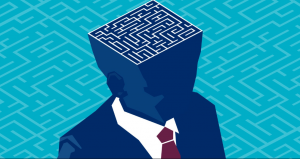Coaching and therapy are two distinct methods that are designed to aid individuals throughout their lives. Although they share a few similarities it is essential to understand the distinct differences between them in order to decide which one is the best one to meet specific requirements. This article will discuss the distinctions between coaching and therapy by explaining their distinctive features and helping people make a well-informed decision about the type of help they require.
Concentrate on Mental Illness. Future Orientation
One of the major difference between therapy and coaching is their primary function. Therapy, sometimes called counseling or psychotherapy, is a method to recognize and treat mental illnesses and address the emotional traumas from the past and help in healing. The therapists are specially trained to help those experiencing major emotional stress, such as depression, anxiety or post-traumatic stress disorder.
However coaches tend to be more focused towards the future and want to assist clients in reaching their goals and reach the fullest potential. Coaches concentrate on personal and professional growth and help clients identify their strengths as well as defining their goals and formulating strategies to achieve their objectives.
Treatment of Mental Health Problems:
Therapy is specifically designed to deal with mental health disorders and issues. Therapists employ evidence-based methods to assist patients with managing their symptoms, devise strategies for coping and improve their overall mental health. They may employ a variety of therapies, including CBT (CBT) psychodynamic therapy or family-systems therapy which is customized to the requirements of each individual.
However, coaching is not a means of the treatment or diagnosis of mental disorders. The coaching profession is not able to diagnose or manage mental illness. Coaches do not possess the education required to deal with mental health issues or provide treatment for mental disorders. Instead, they focus on helping individuals grow by increasing performance and assisting clients to achieve their goals.
Time Orientation and Structure:
Therapy is usually the client being open for a period of time in which clients are able to explore their own feelings, experiences and thoughts to gain clarity and promote healing. The length of therapy may differ based on the individual’s needs and their level of progress and can span from two sessions to a number of weeks or years.
The coaching process is typically an organized and goal-oriented approach in a strict time frame. Clients and coaches are able to work together to define specific goals and formulate plans to implement them and track the performance. The coaching sessions may vary in length, from just a few weeks to several months, based on the difficulty of the objectives and the desired results.
Credentials and Regulation:
Therapists must finish a significant amount of training, education, and also training, in order to be licensed to be able to practice psychotherapy. They must adhere to ethical standards and are supervised by professional associations or licensing boards for state licensure. Therapists are equipped with the abilities and credentials to provide quality mental health services safely.
However, coaching is more unregulated. There are numerous coaching certificates and training classes available, but coaches are not required to obtain permits to practice. It is essential for those seeking coaching services to conduct their investigation and find a coach who has the proper qualifications as well as experience and expertise of the field of knowledge.
Conclusion:
Coaching and therapy are both geared towards distinct objectives and are directed towards different aspects of personal growth and well-being. Therapy focuses on the diagnosis and management of problems with mental health, and offers relief and support for those experiencing stress-related issues. Coaching is however focused on personal and professional development, helping clients with setting goals, enhancing performance, and achieving the top of their game.
Understanding the difference between coaching and therapy is crucial for anyone to make informed decisions about the type of support they require. Based on their specific situation and requirements, the client may choose between coaching or therapy, or the possibility of combining both as each is unique and has advantages in various situations.







